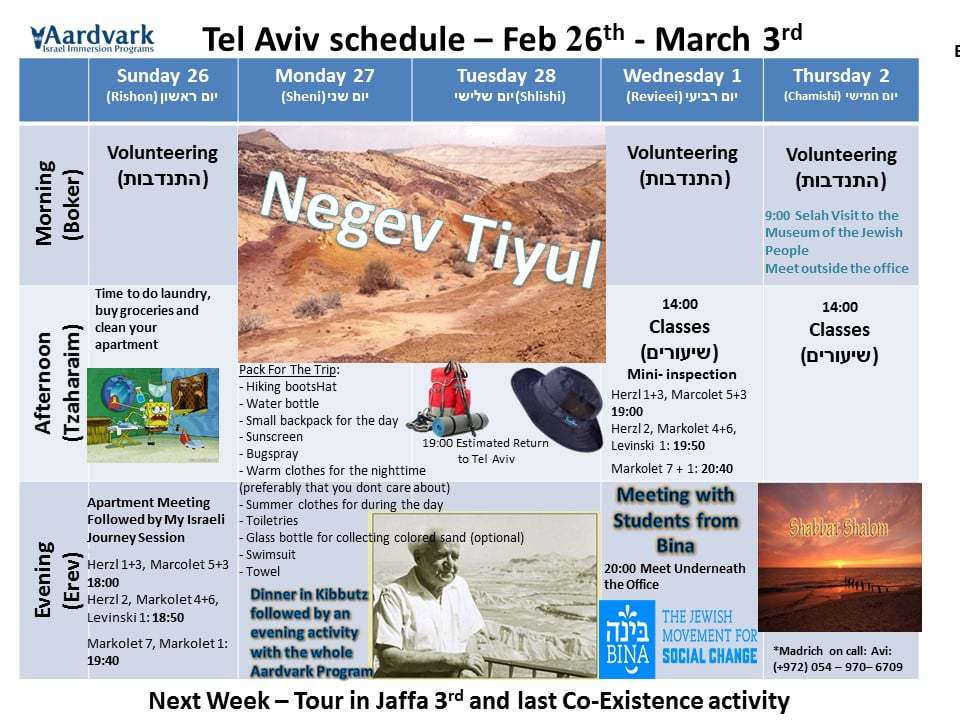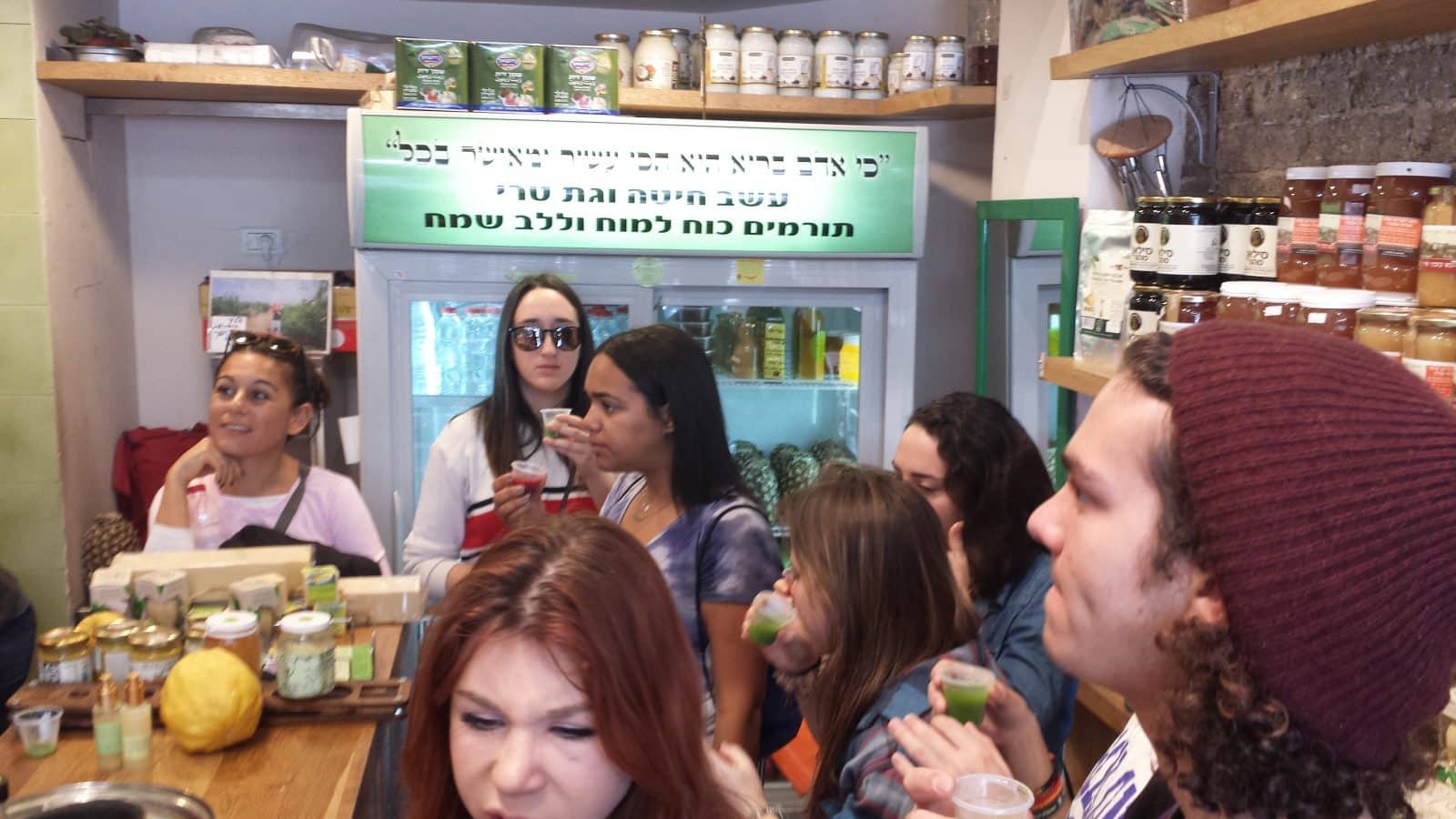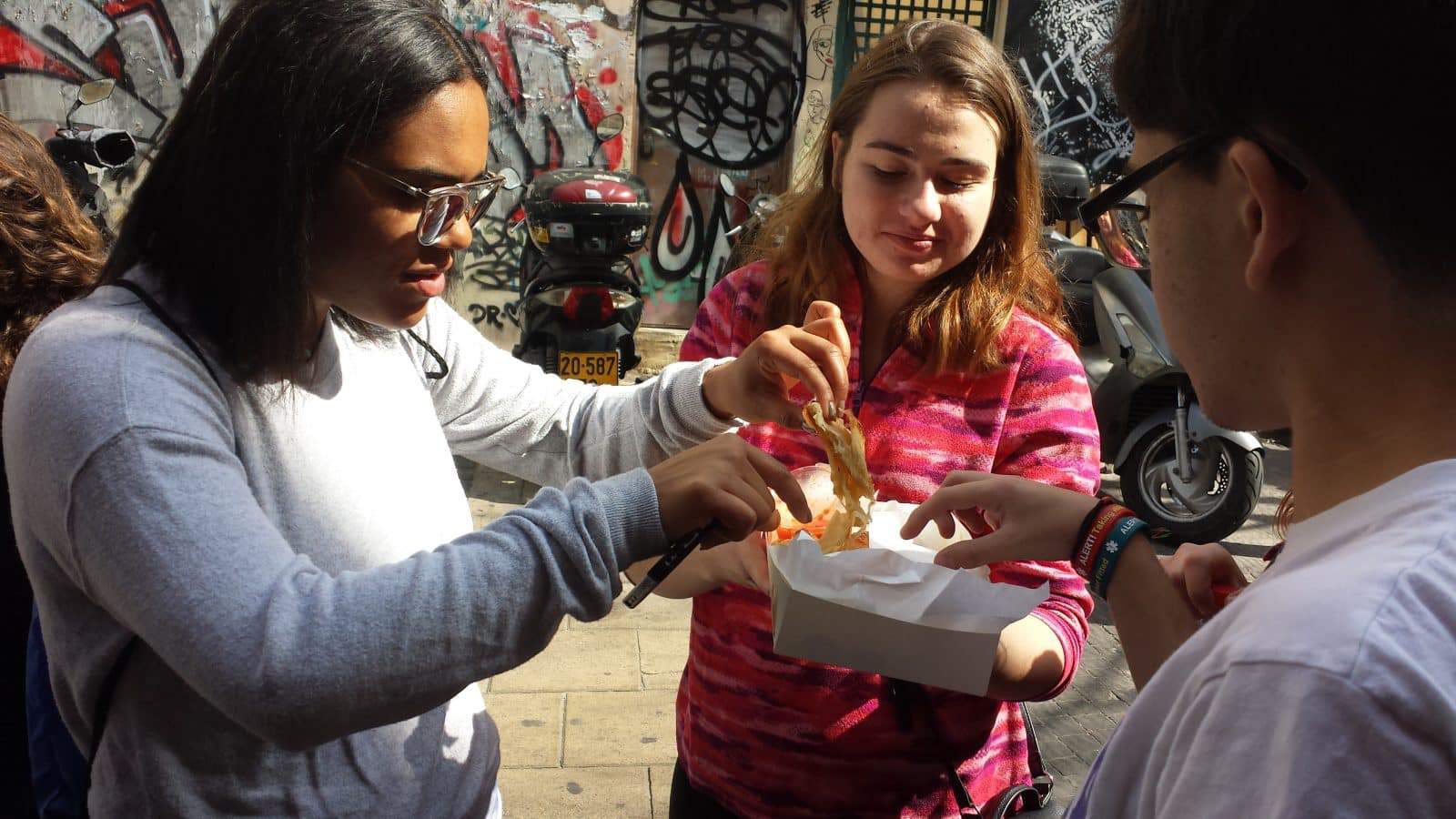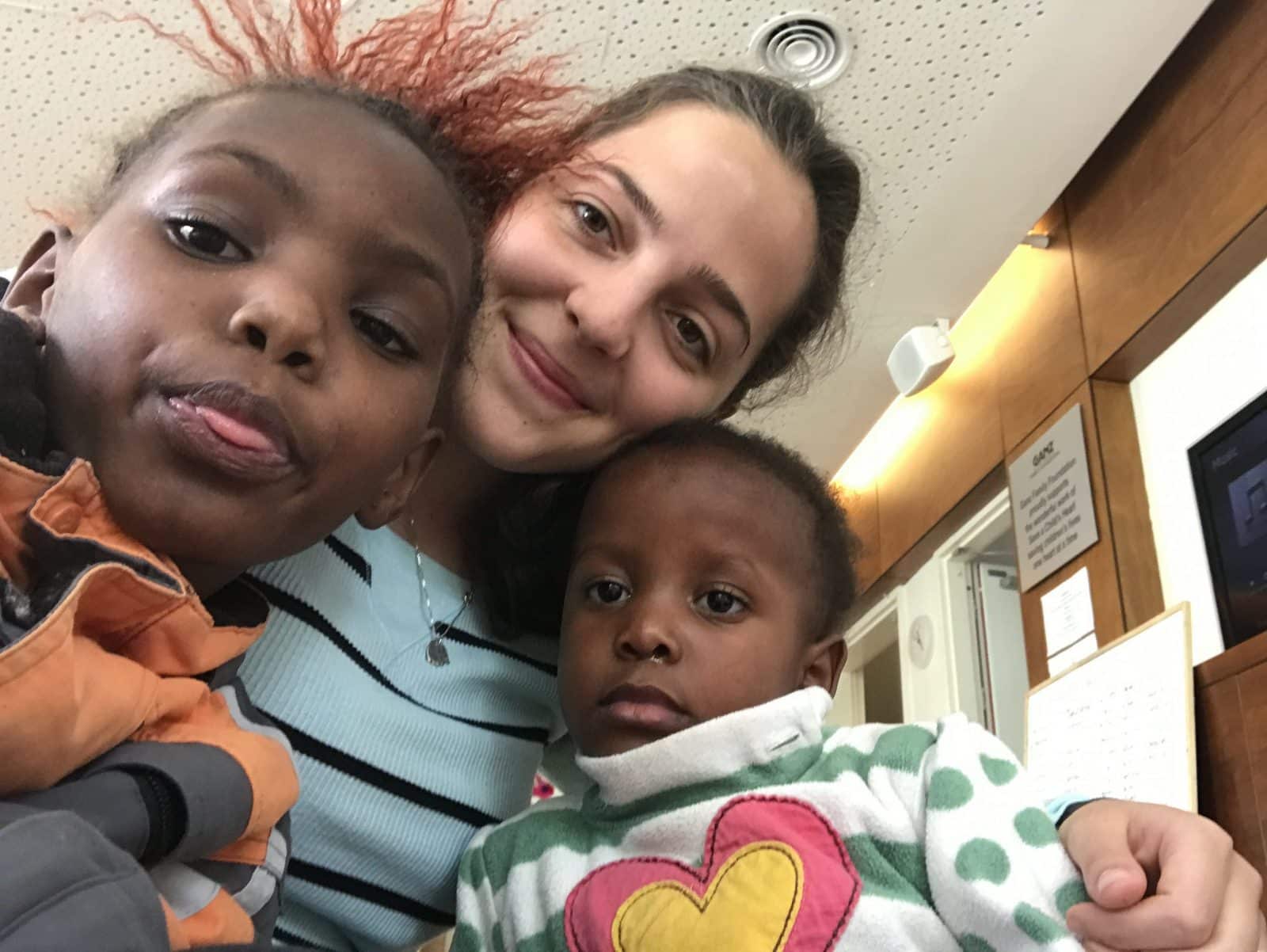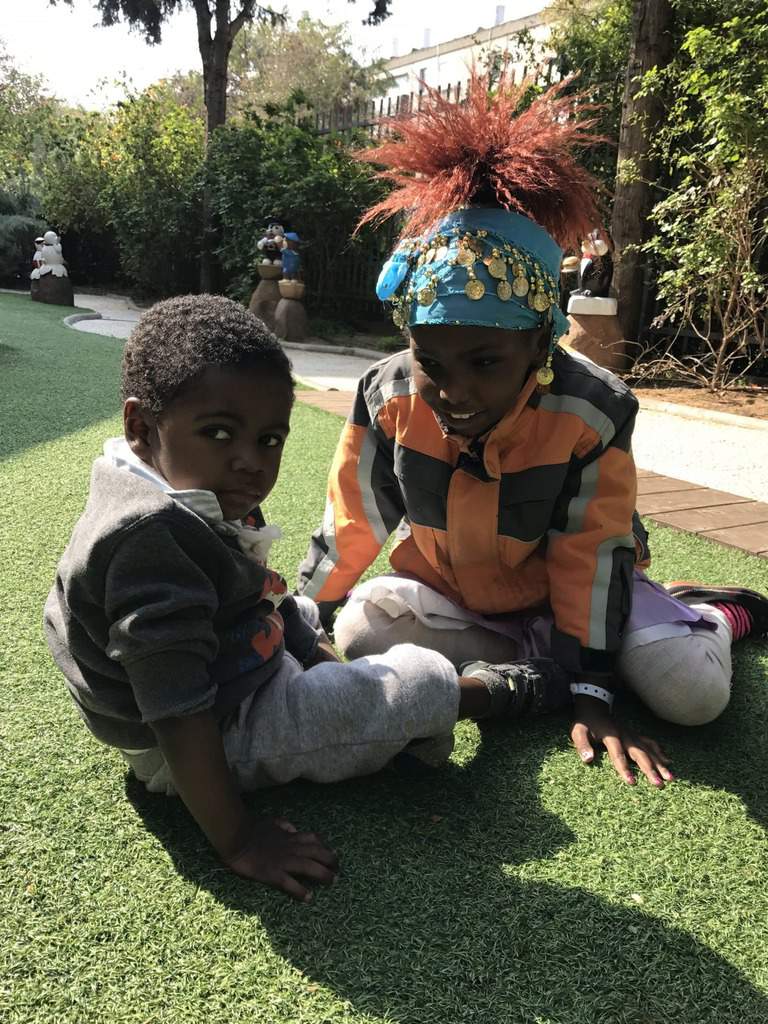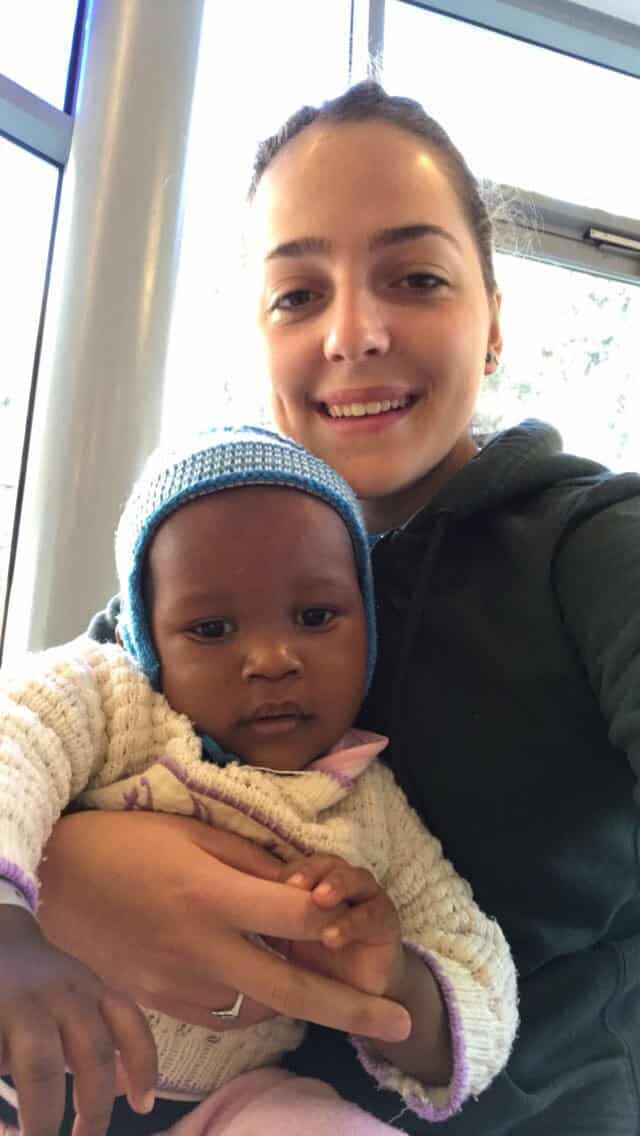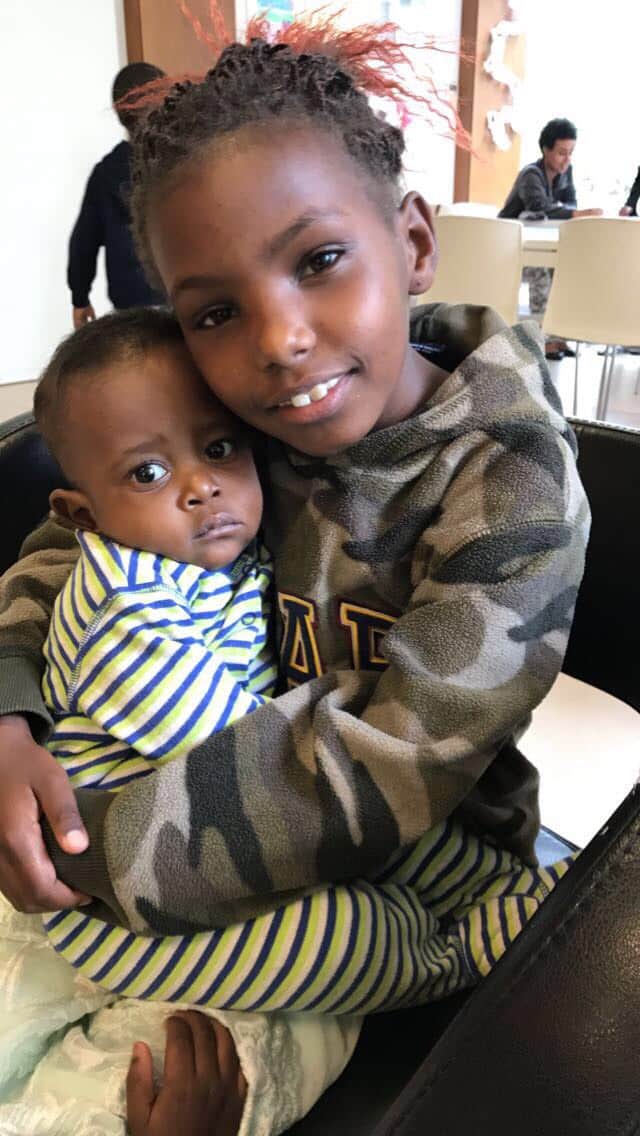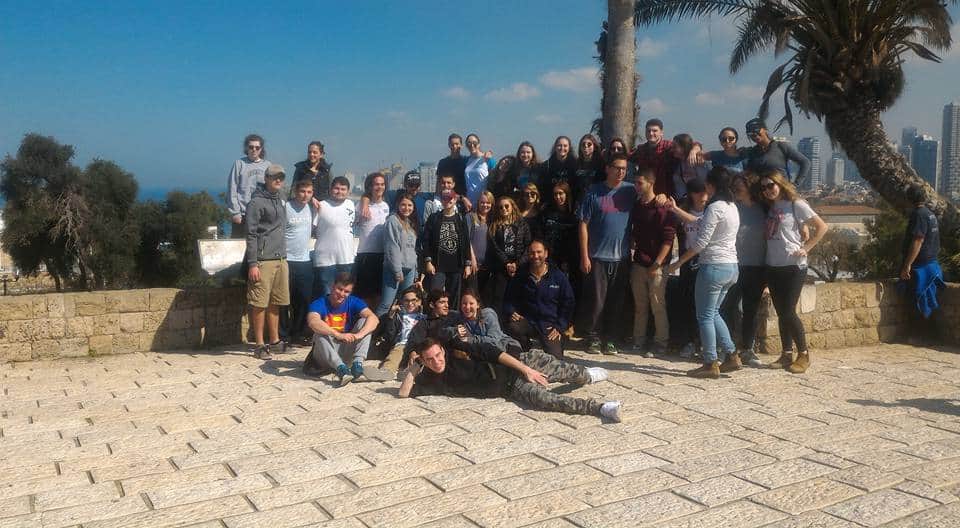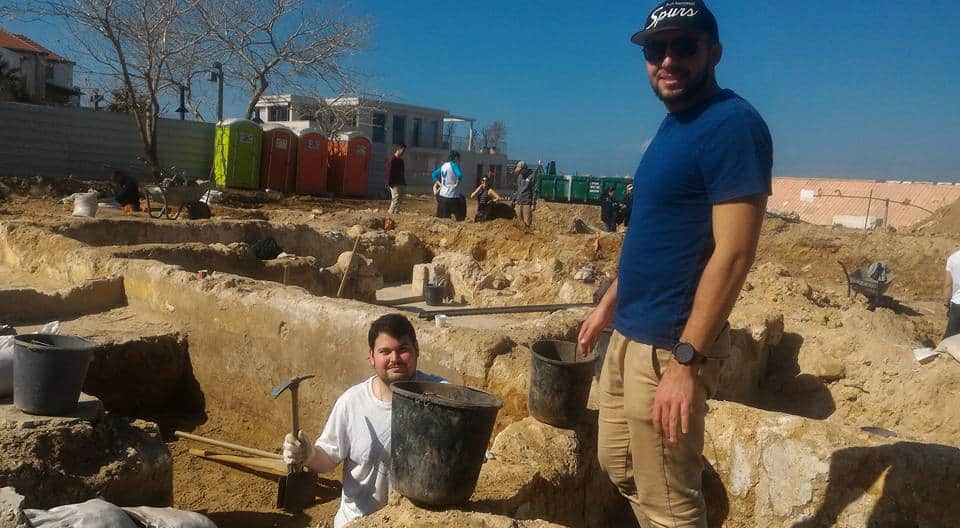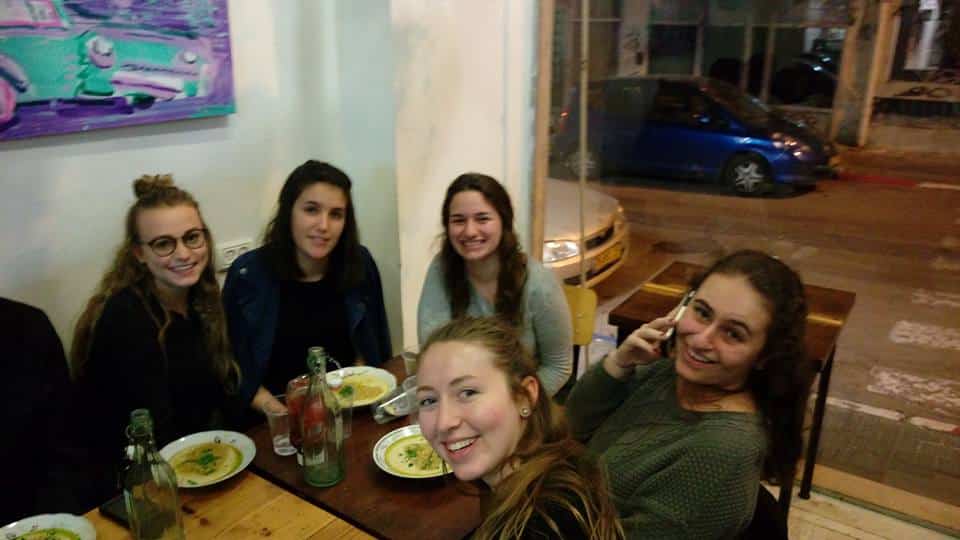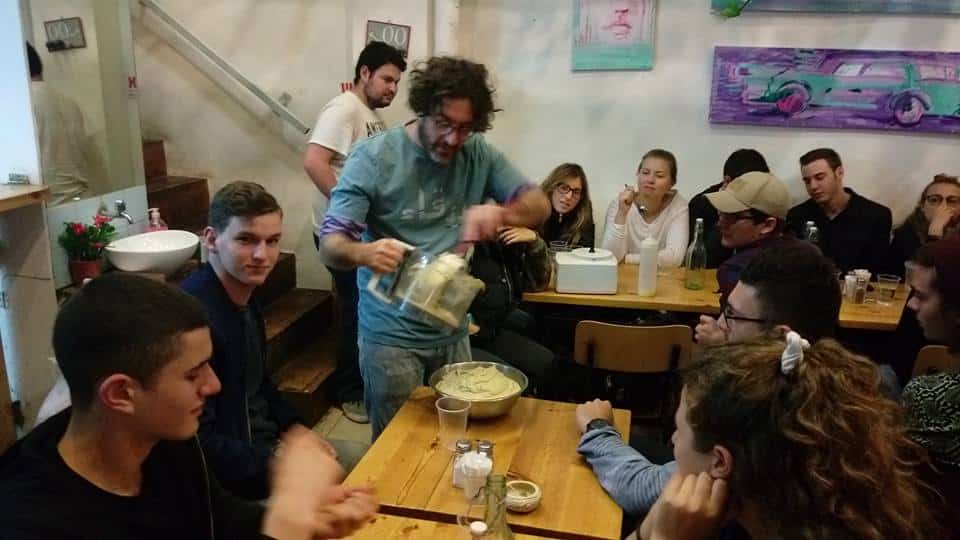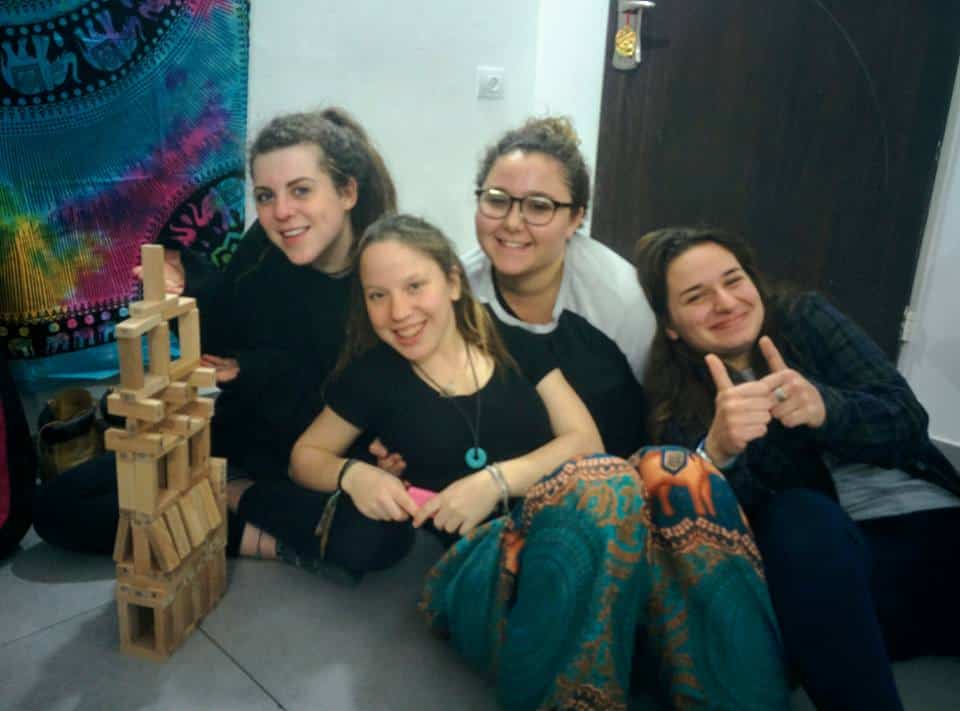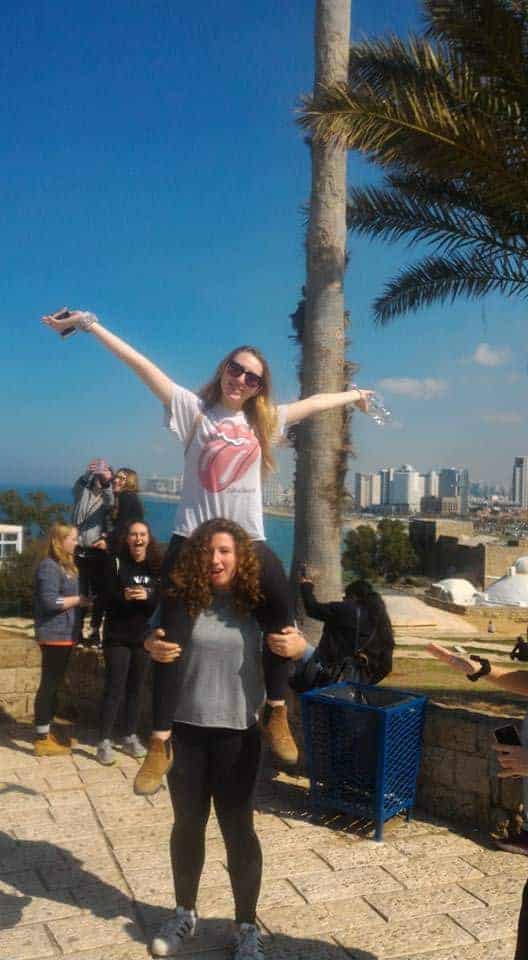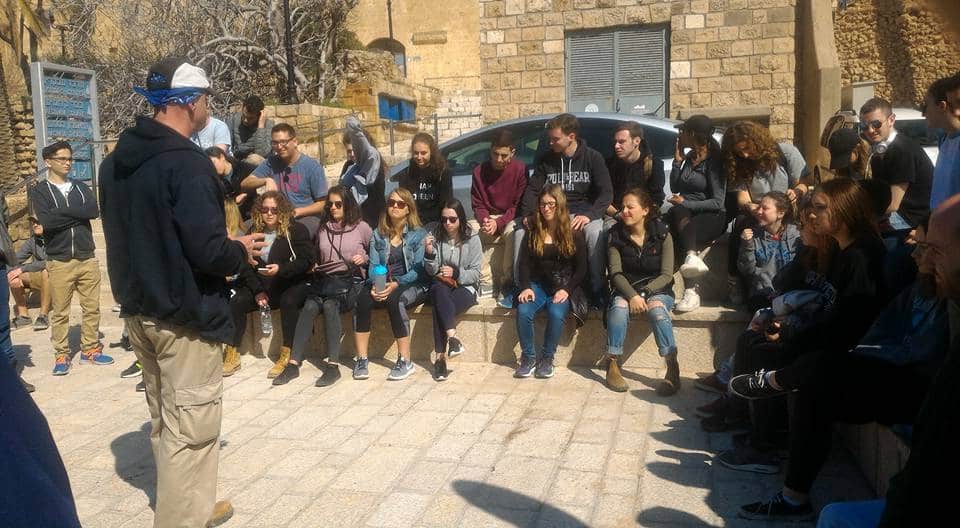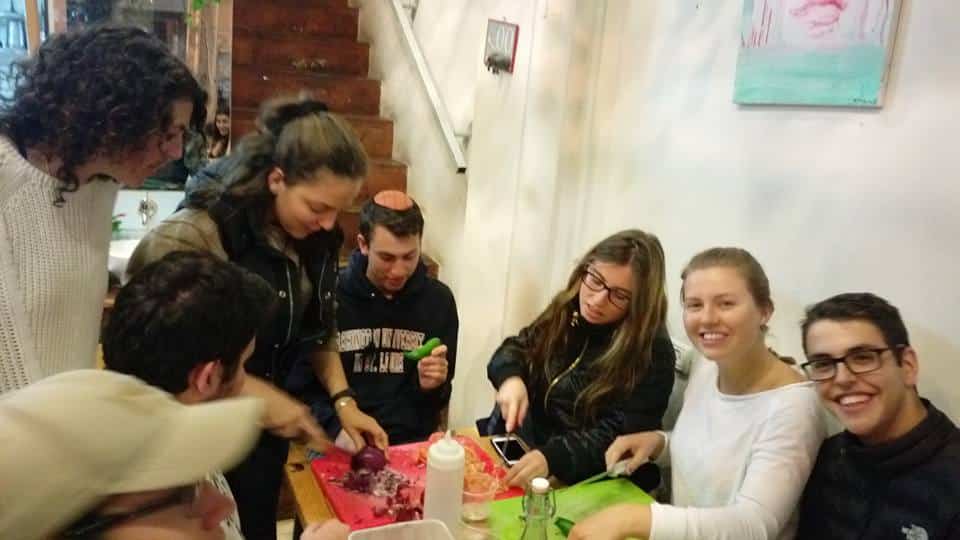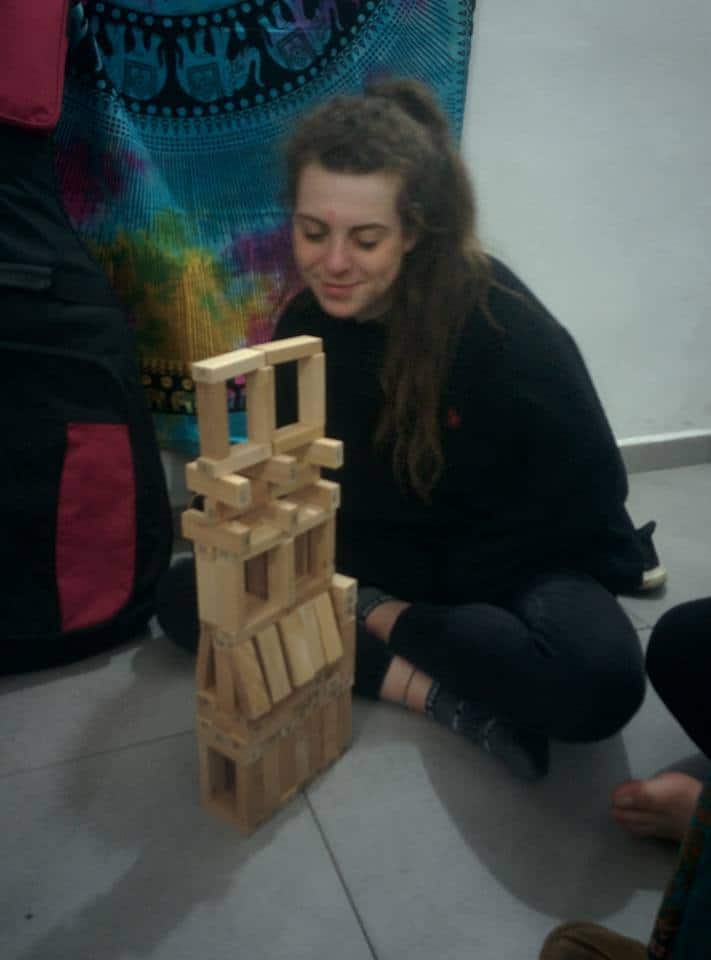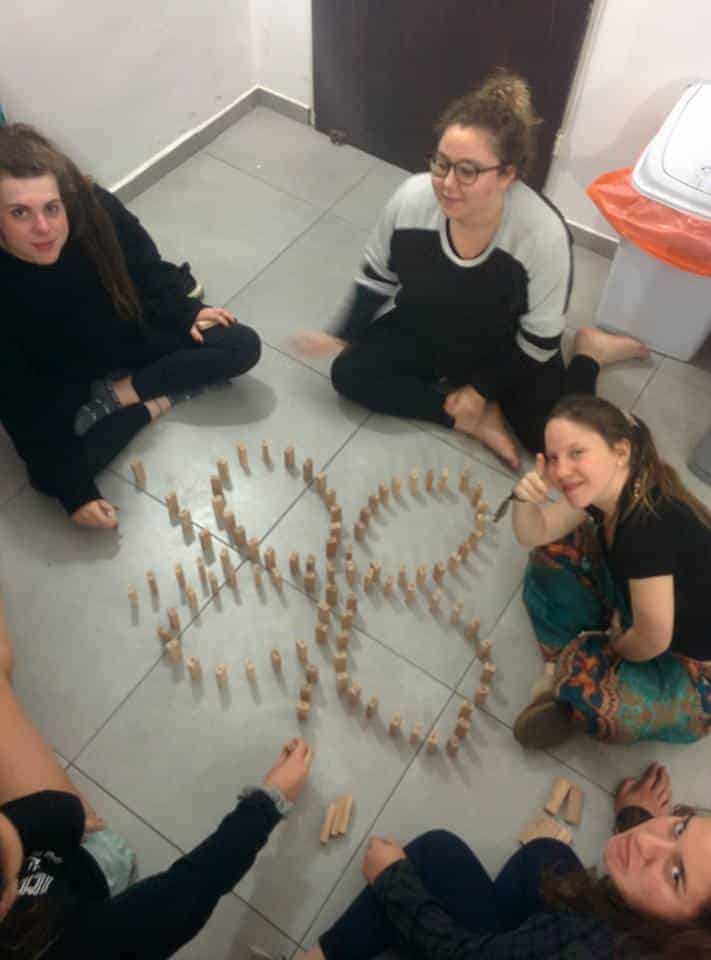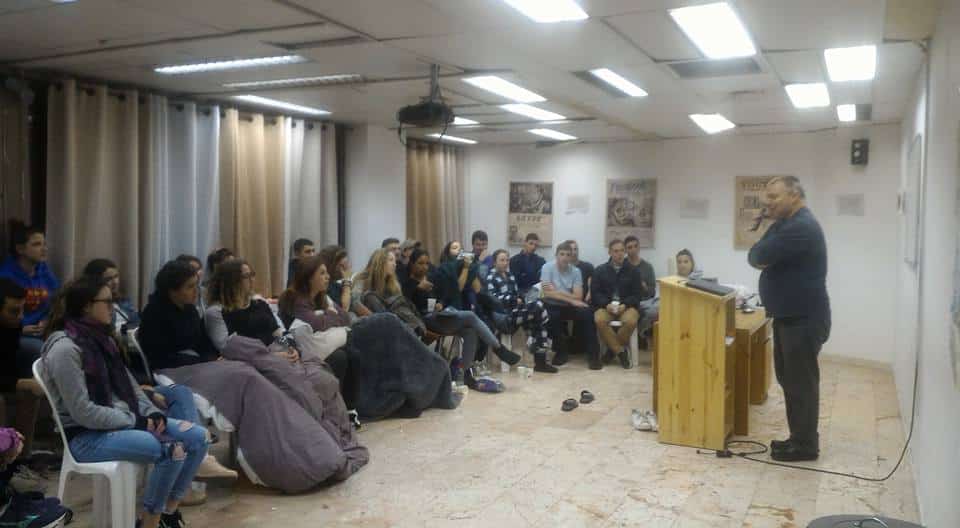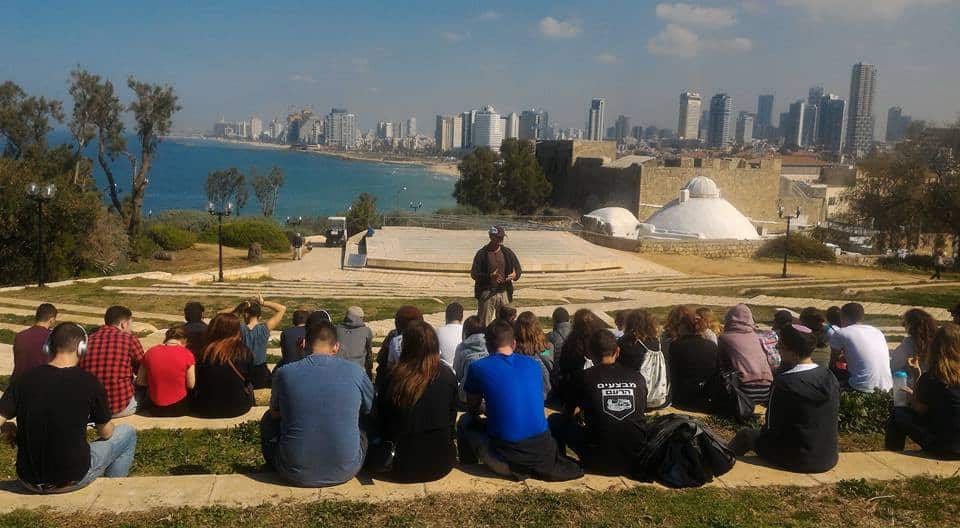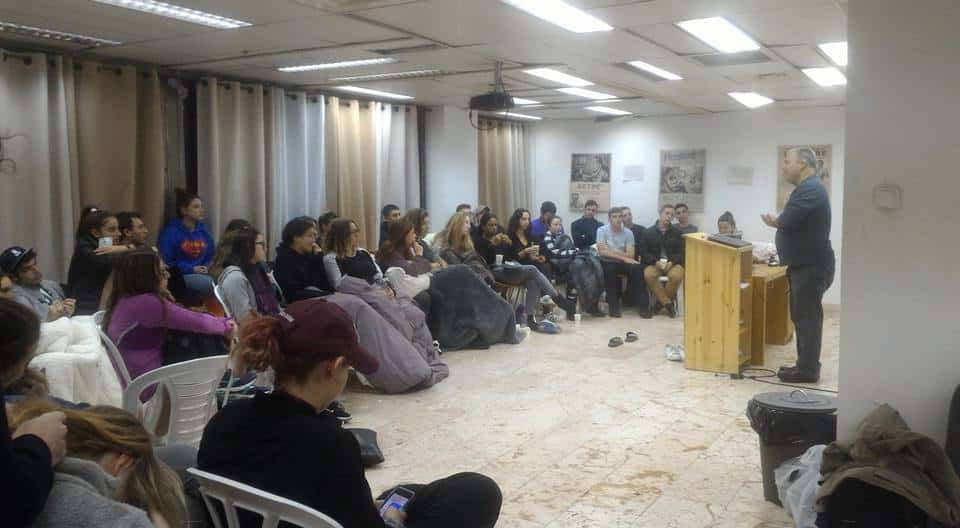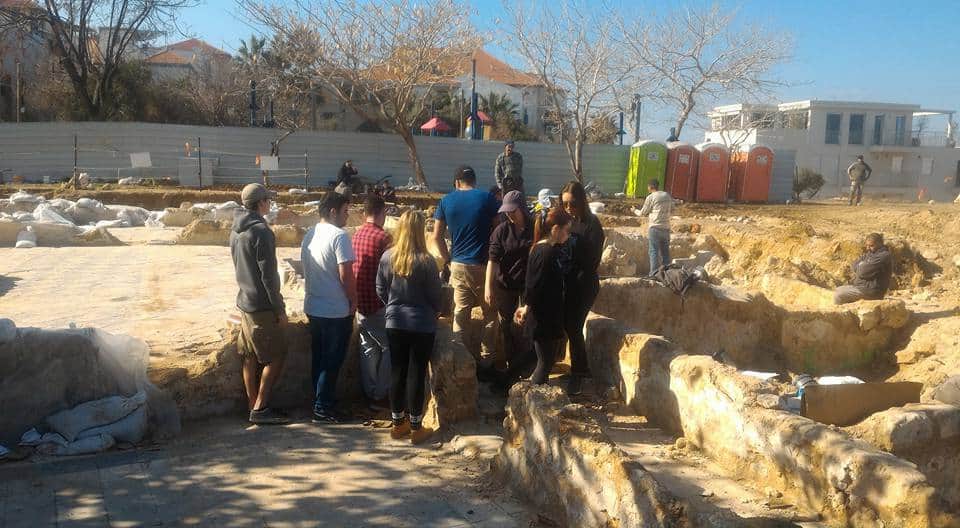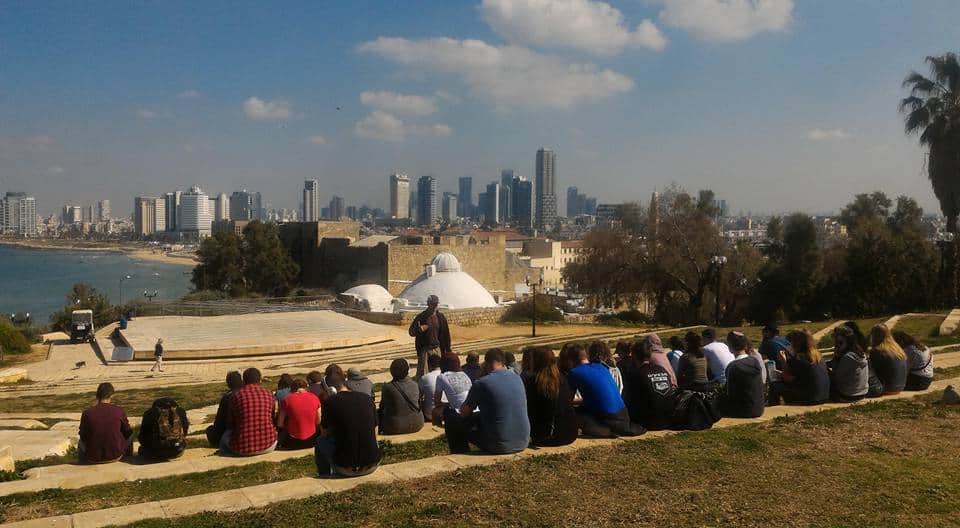Shalom Parents,
Another great week has come to an end. I have a lot to share with you so grab a cup of tea or coffee, find a comfortable sit and relax.
I’ll wait until you’re ready…
Shall we begin?
On Sunday, as usual, the students met in their clean apartments for the apartment meetings. Naama brought the game Jenga to the meeting. Each participant needed to pull a wooden brick from the Jenga tower and place it on top. She used the Jenga game as a metaphor to illustrate the dynamics inside the apartments. Each individual is responsible for the things that happen inside the apartment. When one person is unaware of the apartment’s dynamics, the whole setup comes tumbling down. It may sound simplistic but even the simplest metaphor can be meaningful when it is relevant.
On Monday, we brought all the students together in the Moadon for the second part of the program called “Co-existence and the Israeli-Palestinian Conflict”. The students were given popcorn and snacks and watched the documentary movie “The Green Prince“. The film tells the story of Massab, the son of one of Hamas’ chief leaders (a terrorist organization in the West Bank and Gaza,) who decided to work for the Shabak (the Israeli secret service). Thanks to Massab Israel was able to launch hundreds of operations and prevent many terrorist attacks. Through his work Massab formed a special relationship with his operator, Gonen. Gonen also plays a large role in the movie. When the lights came up at the end of the movie, Gonen (Massab’s operator) came into the room. The students were shocked to see him! You should have seen their faces…
Gonen spoke about the special relationship he had with Massaab then and today. He then gave the students a chance to ask questions about the movie and his work in general. It was a fascinating talk.
This Tuesday, for the first time, we went to an archaeological site to dig and search for artifacts. The site contained the remains of ancient buildings from the Byzantine era. The students were selected one at a time for various different tasks. Some were taken to do some delicate digging, some for rough digging with some hard tools and some were sweeping the sand from the gentle and beautiful floor. Every few minutes one of the students would shout, “OMG! I’ve found a lost treasure!” meaning that they had found a piece of a floor/wall.
After a few hours of digging and searching the main archaeologist gathered the group together, thanked the students, and explained how important their help is in excavating the site. He then led a fascinating tour around the beautiful streets of Jaffa going from era to era. He explained the genius and cruelty of the French general Napoleon who conquered Jaffa.
On Wednesday evening the students went to a Hummus Workshop in an actual Hummus restaurant! The restaurant’s hummus chef ran the activity. He divided the students into small groups. Each group was in charge of something that is needed for a proper hummus meal such as the French fries, grinding tahini, making salad and falafel. In the pictures below you can see the fantastic dinner that the students made. Afterward, when everyone was full from eating hummus, the chef brought out some sweet Mediterranean goodies, such as Baklava and black coffee.
This week in Parsha and Pizza the group discussed the Torah portion of Mishpatim with Rabbi Marc. Following the exodus from Egypt, all the miracles and the Ten Commandments, in this portion the Jewish people encounter something more mundane: laws, lots of laws. The portion contains over fifty laws covering everything from the prohibition on sorcery to making sure that your cattle does not run wild and cause damage (check out the bull on the loose in New York this week!). We looked at the laws allowing slavery and asked how it was possible that recently freed slaves were allowed to have slaves of their own. Perhaps because, apart from the word slavery, Jewish slavery has little in common with the modern concept of slavery. Jewish slavery was an ancient way of helping people get out of debt. Bankruptcy would lead to the court selling you as a slave for a maximum of 6 years. The slave owners were not allowed to abuse the slaves nor give them unnecessarily difficult or unproductive labor. The Rabbis of the Talmud had a phrase, “Anyone who buys a slave buys themselves a master”. Slaves had to be fed, clothed and housed to the same standards as the master, could not work on Shabbat and the slaves’ wife and children were given protection. The portion also teaches us the prohibition against bribery and corruption and the group discussed the dangers of injustice and unfairness in society, the justice system and law enforcement.
Alexa Elias wrote about her internship:
“Save A Child’s Heart is an organization that brings children with heart disease from developing countries to Israel to receive life-saving surgery and treatment. Four days a week I spend time at the SACH house where the children and their mothers live while they await their surgery or recover, sometimes for months. By doing activities and playing games with the kids, I help make their recovery in Israel more fun and develop close bonds with them. I’m so happy I can be a part of SACH and meet these amazing and strong children.”
Rabbi Joshua Halickman wrote about his class “A History of Zionism – Through Sports”:
“As part of the Zionism in Sports class we look at the past, present and future of Israel through the prism of sports and this week we examined the Elor Azaria case and how it relates to racism in sports in Israel. Elor Azaria, for those that are not familiar, is a soldier in the IDF who was just sentenced to 18-months in prison for shooting dead a wounded Arab terrorist in Hebron.
We spoke about his background and the fact that he was part of a “fan” group called La Familia who support Beitar Jerusalem, one of Israel’s soccer teams. La Familia is against having any Muslim players and we examined the issue of racism and its effects on Israeli society while also watching an ESPN E:60 documentary on the subject. In addition, we viewed a preview about a brand new movie entitled Forever Pure which discusses the team, its fan base and the story of two Muslim players that came from Chechnya to play with the club and the unfortunate resulting aftermath.
Most importantly we analyzed our values as Jews and how they relate to the world at large. Israel and the Jewish People will always be put under the world’s microscope and we spoke about the importance of being a guiding light and a leader on moral issues.”
Selah had a fantastic and food-filled week. Sunday saw Chaya, Elad and Rabbi Marc lead Lunch and Learn over a salad buffet and had the group talk about spirituality and eating, making blessings and holy food. At Tuesday night’s Bet Midrash Rabbi Eli taught us some Tanya (one of the most important books of Chassidism) and challenged the group on their successes and failures and our daily struggle with our ego and Yetzer Hara. Thursday saw the group go on a Jewish food tour of the Carmel Market with the incredible guide Talia Berger. Talia has mixed Hungarian-Turkish roots even though she is an Australian-Israeli! She led us through different cuisines and helped us not only taste a delicious variety of foods but also to reflect on the foods we eat in our homes, the gathering of exiles to the State of Israel and the centrality of food to Jewish culture and tradition. Selah participants will never look at Yemenite Etrogs, Swedish herring and Egyptian full beans the same way again. Coming up this weekend is another Selah Shabbaton, this time in Kibbutz Kramim near Beer Sheva. It is a mixed religious-secular Kibbutz and the weekend promises to be full of more food, prayer and relaxation.
That will be all for now,
Until next time,
Shabbat Shalom,
Adi.
